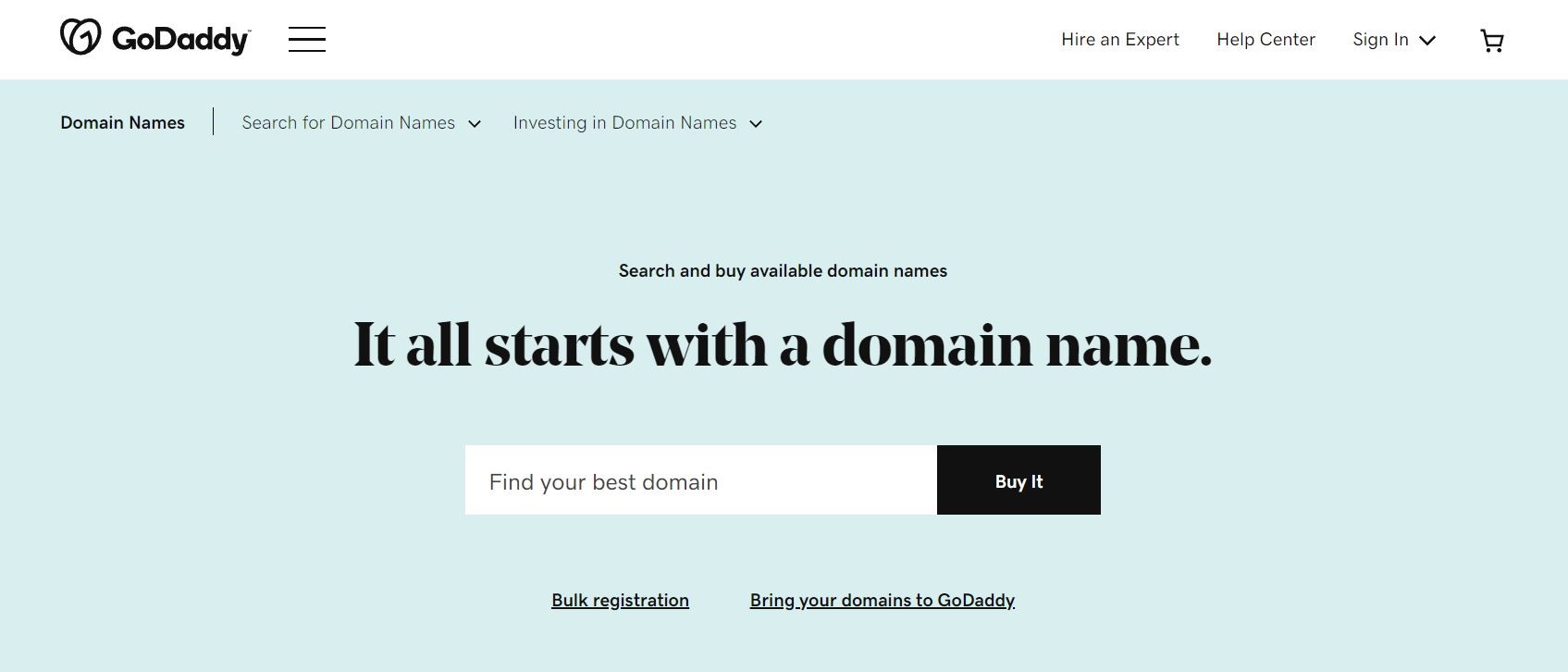TechRadar Verdict
GoDaddy is a decent domain registrar. It's easy to use and offers proper customer support for users. Of all the domain registrars we’ve reviewed, GoDaddy has one of the broadest selection of domain extensions. However, its domains are expensive compared to rivals, especially for individuals and small businesses.
Pros
- +
Easy to use
- +
Excellent customer support
- +
Numerous TLDs available
Cons
- -
Alleged Domain front-running
- -
Relatively expensive
- -
Aggressive upselling
Why you can trust TechRadar
GoDaddy is an American domain registrar and web hosting provider founded over two decades ago. It's one of the biggest companies in its sector, serving over 20 million customers. The company employs over 9,000 people worldwide.
GoDaddy offers domain name registration, cloud hosting, and a website builder. It also provides complimentary digital marketing tools for customers.
We tested GoDaddy thoroughly to give a detailed, unbiased review. We evaluated the web hosting platform based on specific criteria, including pricing, features, customer support, ease of use, etc.
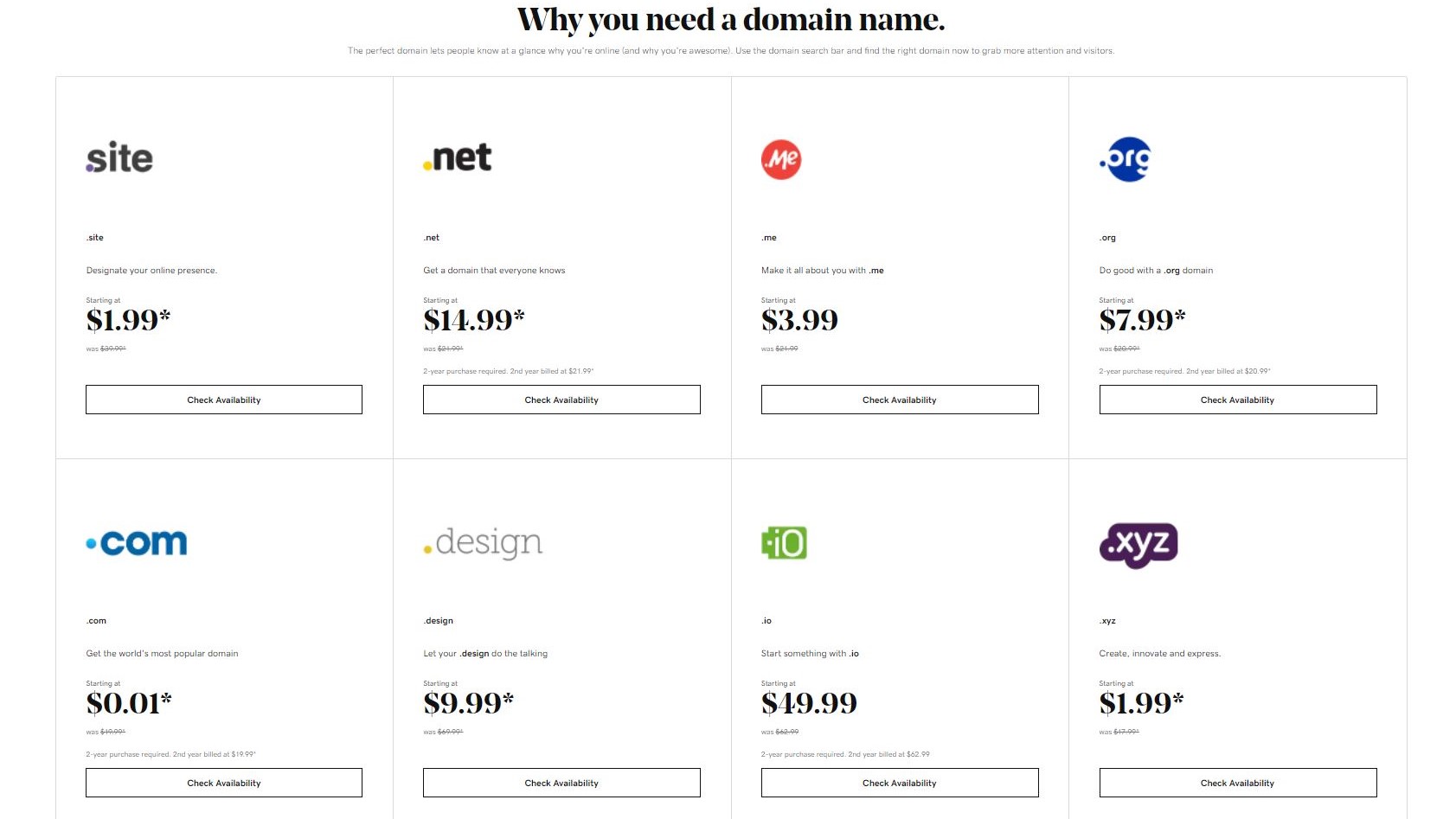
Plans and pricing
GoDaddy charges varying fees for different domain names. The common domain extensions like .com, .net., and .org cost between $20 to $25 per year, while uncommon ones like .cloud, .blog, and .today cost between $30 and $40 per year. However, some select premium domains can run up to hundreds or thousands of dollars. GoDaddy’s prices are significantly higher than what you'll get on rival platforms.
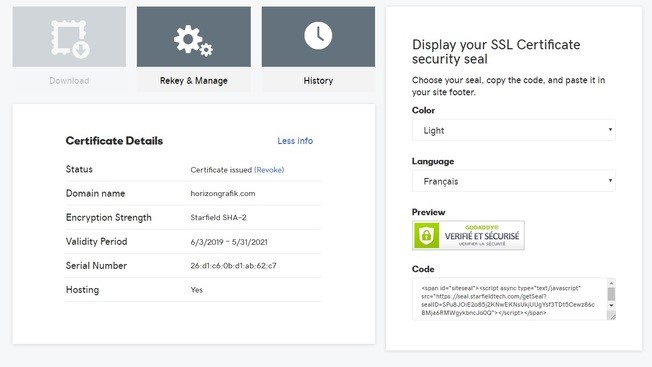
Additionally, you can buy SSL certificates for your GoDaddy domains. They cost between $95 and $245 yearly. Finally, don't forget to see what GoDaddy promo codes can assist you in bringing the price down.
Features
You can register any available domain name through GoDaddy. One of the great things about the platform is that it offers a wide selection of domain extensions. Its domain names are classified into two categories; generic top-level domain and country-code top-level domain.
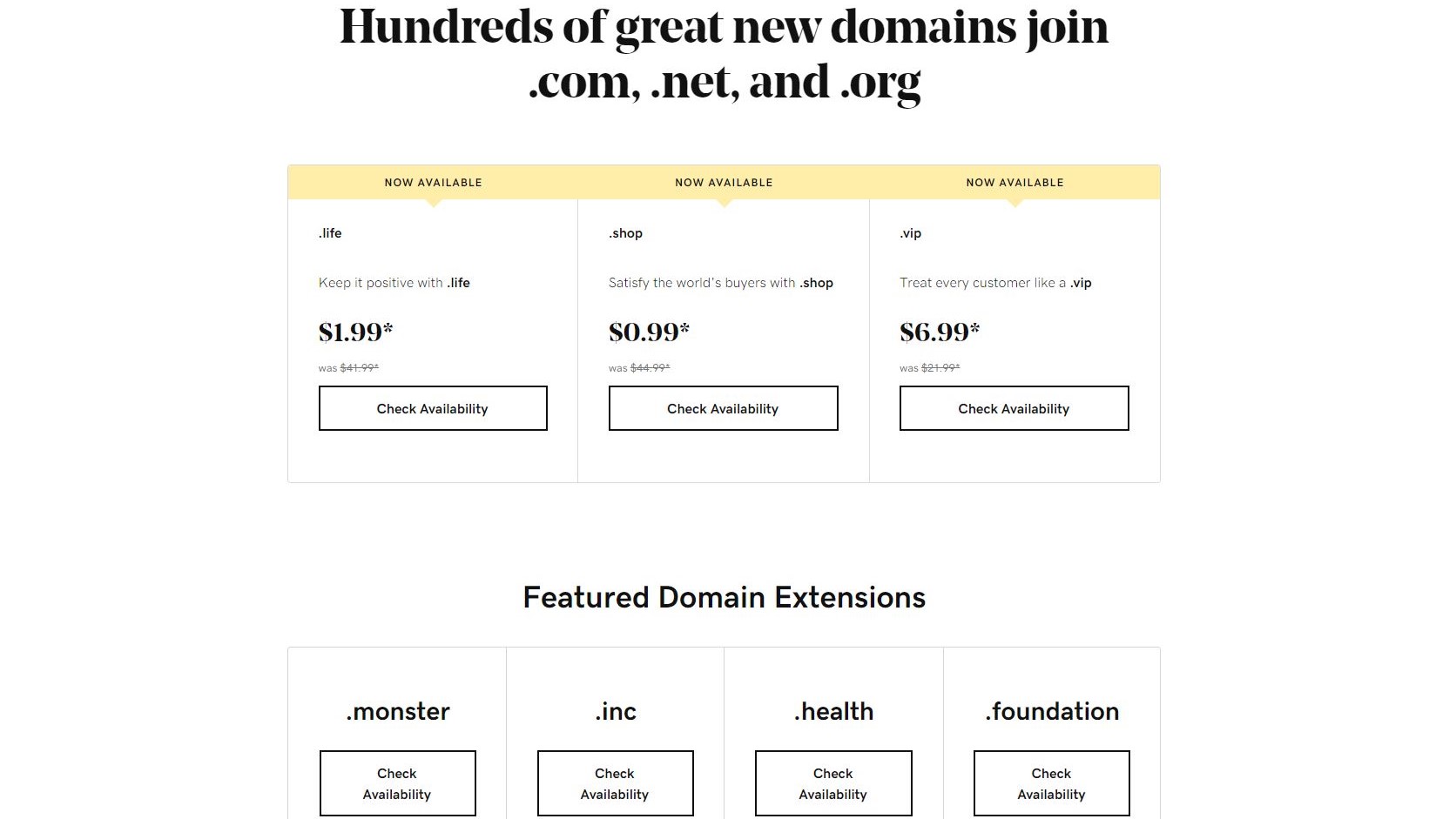
Generic top-level domain is the type you can easily recognize with a suffix attached to a domain name. They aren't linked to geographical regions or special authorities. Any individual or organization can buy them. Common ones include .NET, .COM, .ORG, and .CO.
Country-code top-level domains are those generally used or reserved for a country or special region. They are all two letters long, with abbreviations representing various countries' names. Examples include .CA (Canada), .CU (CUBA), .DJ (Djibouti), and .CC (Cocos Islands).
Registering a new domain name on GoDaddy is easy. The first step is to visit the official homepage (GoDaddy.com). Once the home page loads, you'll see a search bar where you can check to see if your desired domain is available. If it is, you'll be allowed to immediately add it to the cart. Otherwise, GoDaddy will prompt you to search for a new domain name or select a different variation.
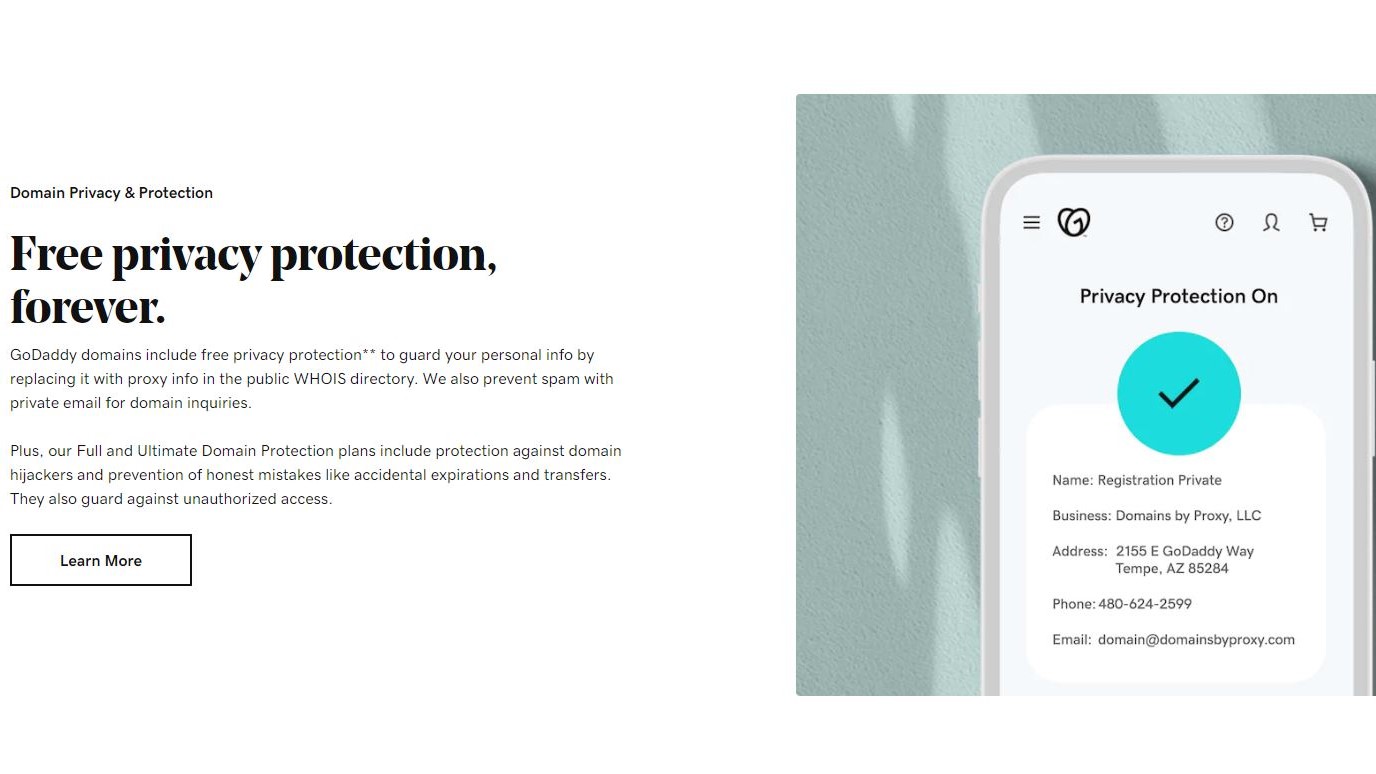
If the domain name you want is already taken, don’t give up. You can attempt to acquire it but in a different way than buying a new domain. The first step is to find out who owns the domain. You can do that by searching the public WHOIS database for contact information. This database houses the information collected when someone registers a domain name or updates their DNS settings.
There’s a dedicated GoDaddy WHOIS database search tool you can utilize. If you type in the domain name in this database, you should see the email address used to register it. In some cases, domain name owners enable privacy protection so that their information doesn’t appear on the WHOIS database. Such people are likely not entertaining any offers for their domains.
If you see an email associated with a domain, you can contact them with an offer and wait for a response. This process often takes a significant amount of time, so be patient. There’s also no guarantee that the customer will be willing to accept your offer.
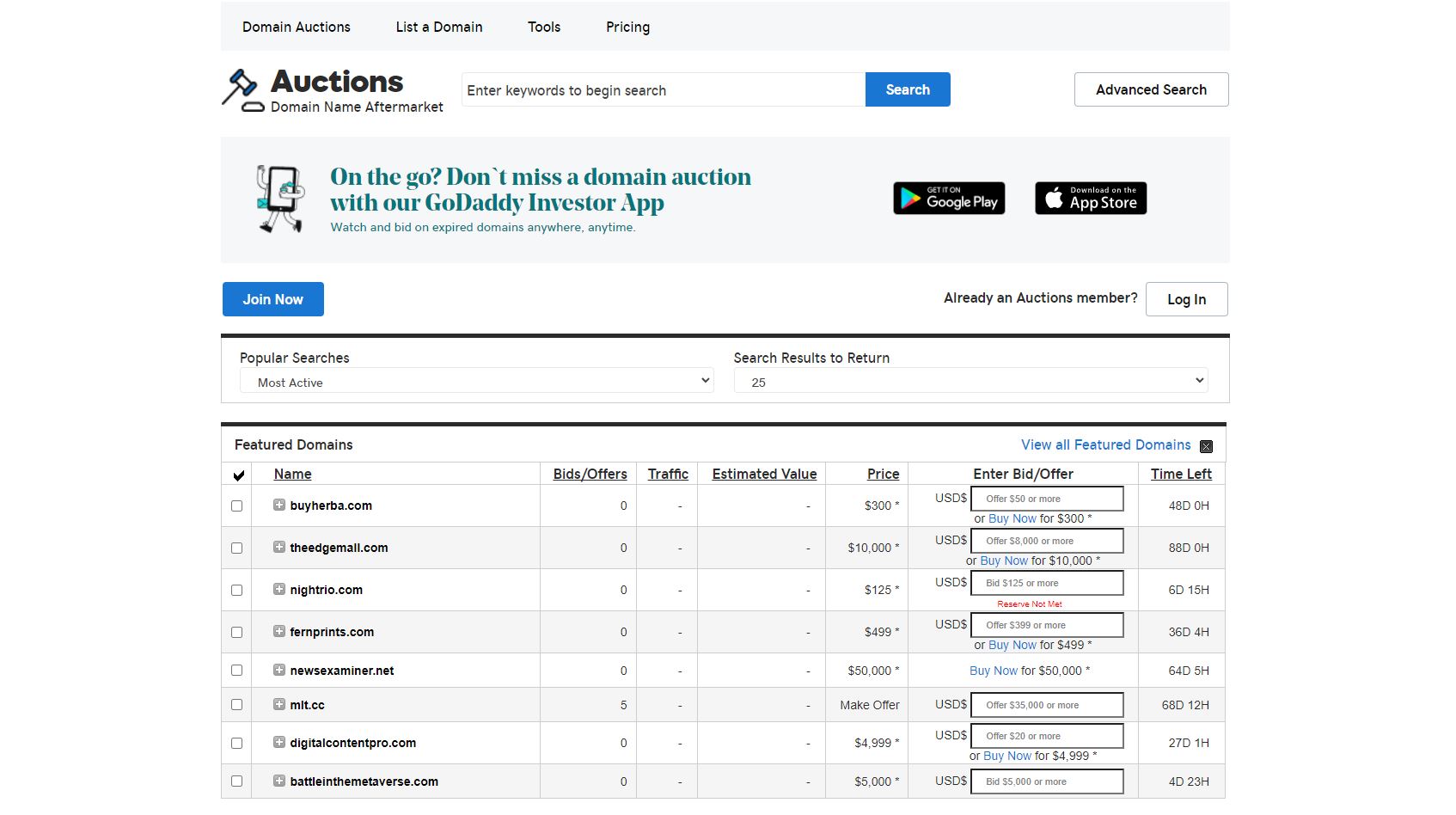
GoDaddy also lets users participate in auctions for specific domains. GoDaddy Auctions is a marketplace for domain sellers to find potential buyers. It’s an auction-based model, so the buyer with the highest bid wins.
You can also transfer a domain name registered elsewhere to GoDaddy, and the process is pretty simple. Likewise, you can buy complimentary services for your GoDaddy domains, such as professional emails and an SSL certificate.
Interface and in use
Signing up and creating a GoDaddy account is pretty straightforward. You can create an account using your email or a Facebook, Google, or Amazon account if you have one.
GoDaddy's tools are simple to use. The interfaces are typically neat, uncluttered, and easy to navigate.
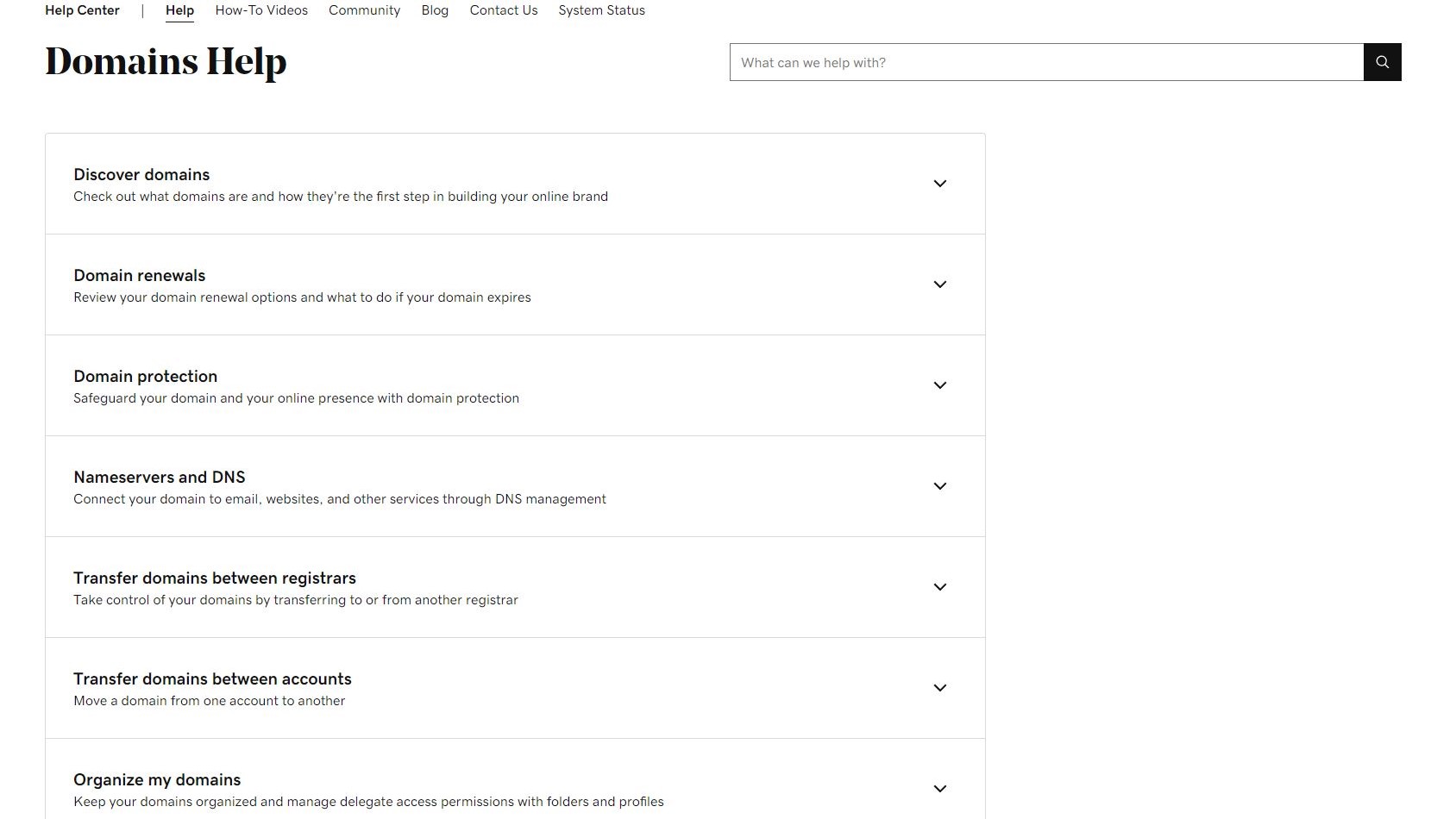
Customer support
GoDaddy offers customer support through telephone and live chat 24/7. They're different mobile numbers to contact depending on your country of residence. GoDaddy has over 20 million customers, so the support lines occasionally clog up when there's high demand.
The competition
GoDaddy's main competitors include Namecheap, Bluehost, and IONOS. GoDaddy is more convenient and reliable than these rivals but significantly more expensive.
Final verdict
GoDaddy is a reliable domain registrar. It’s easy to use and offers excellent customer support in times of difficulty. However, GoDaddy's main drawback is that it's significantly costlier than rival domain registrars.
When researching for this review, we also discovered a trend of accusations from customers that GoDaddy engages in domain front-running. This is a practice whereby a domain registrar uses insider information (gleaned from potential customers) to register domains with the purpose of reselling them. GoDaddy continues to deny engaging in this practice, so we’re not sure if the accusations ring true.
To err on the safe side, you can search for your desired domains on other registrars to see if they’re available before heading to GoDaddy to register them.
Stefan has always been a lover of tech. He graduated with an MSc in geological engineering but soon discovered he had a knack for writing instead. So he decided to combine his newfound and life-long passions to become a technology writer. As a freelance content writer, Stefan can break down complex technological topics, making them easily digestible for the lay audience.
